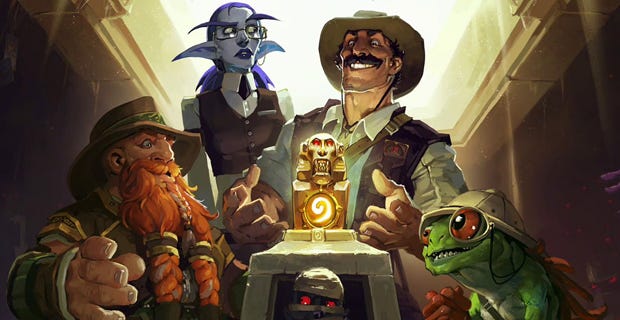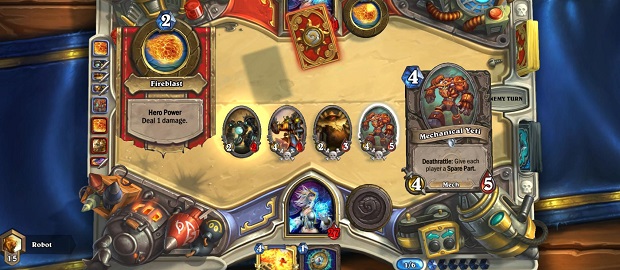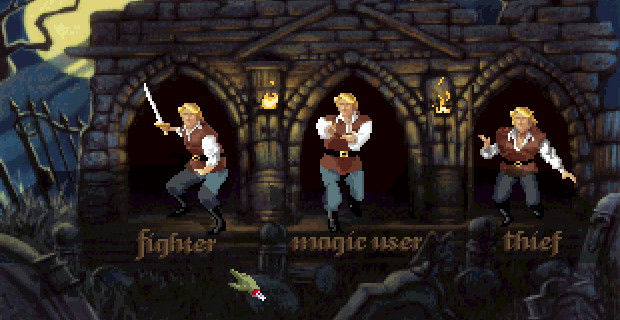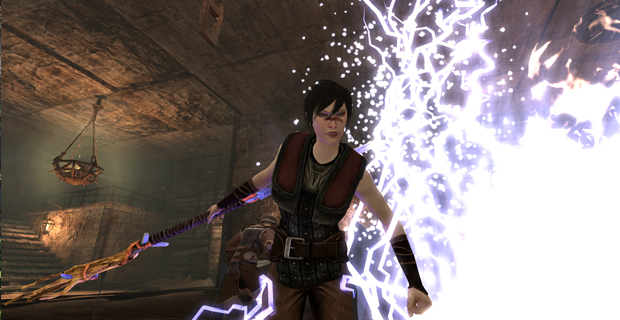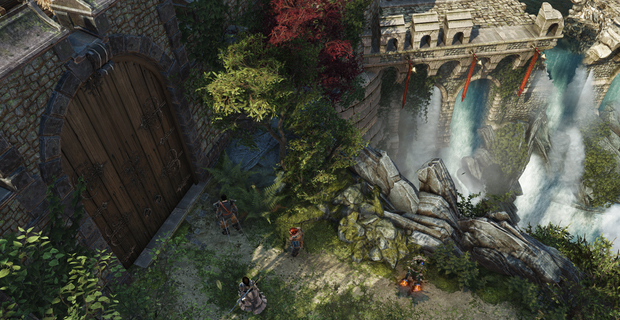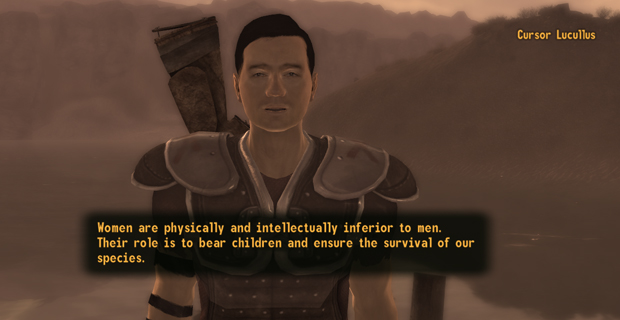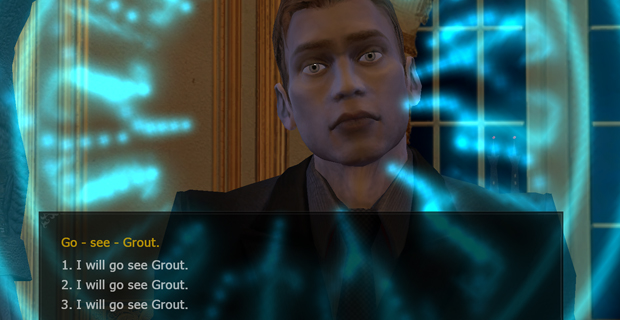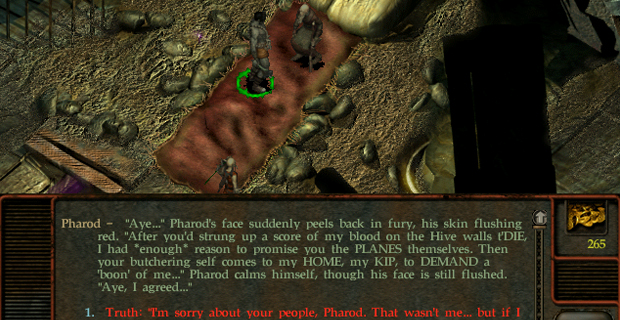The RPG Scrollbars: Roles We Take, Roles We Choose
Legends of character creation
Not for the first time, I've spent quite a while recently pondering the nature of roles - more specifically, mechanical role versus narrative role. When we think of RPGs, what we're usually thinking of is the latter. You play the role of the Hero, but in a universe that's typically designed to let you define that however you like. I'm not saying that's a bad thing, but there's a key difference between that and stepping into the shoes of someone more specific. Geralt in The Witcher 3 for instance is - spoiler alert - a Witcher. Every encounter revolves around that, every system involves it, every decision has, whether it's by your choice or Geralt bringing it up, a mercenary element that reinforces that asking for money in exchange for your services is expected and not, as is often the case, the first step towards douchery and getting the Evil ending.
I've also been playing a lot of Hearthstone. The two things are linked.
The more I play Hearthstone, the more I admire it. The League of Explorers expansion really re-ignited my somewhat flagging enthusiasm with its humour and constant clever gimmicks, and it's now something of an evening ritual to lie in bed at night with my iPad, unleashing Zoolock heck on enemies with one of my cats by my side. Over the last month or so, when I've been looking into the nature of roles for a project I'm working on and how it affects quest design and similar, it's also been something of an inspiration. I'm not saying this is a new revelation or anything, it's baked into the core design and was (justifiably) heavily praised at launch, but Heathstone really is a perfect little example of mechanical role-play in action. Even though it's not an RPG.
Just to clarify though, what I mean is that each character doesn't simply have thematically appropriate cards for their class, or a little wallpapering, but encourages you to get into the mindset of their roles. A Warlock for instance is all about sacrifice; playing fast and loose with your health pool, making deals with demons for their services, and wherever possible, finding ways to get out of your payments. Take the Doomguard. It demands two randomly picked cards from your hand, and in most circumstances you want to avoid paying that. You're encouraged to go Full Weasel on it, either by summoning it with an empty hand so that there's nothing to take, or bringing it into play some other way, such as with a Voidcaller.
It's a better recreation of the character mindset than any actual RPG with a Warlock option, which typically treats it as just 'summon some demons, throw some shit.' In a similar vein, Rogues are encouraged to literally keep their cards close to their pneumatic chest (it is Valeera after all), with tactics built around sudden bursts of damage and sabotage, while Mages rely on an interlocking set of secrets and spells, and Warriors tank the battlefield. All of the characters' skills, cards and personalities play into it. At least until someone spoils it by fielding an all-Murloc army. Spoilsports.
Keeping this in mind throws a very different light on so many RPGs and the rare feeling of actually BEING somebody in a game. Ultima for instance puts you into the narrative role of the Avatar, paragon of the eight virtues, defeater of yadda yadda, but the running joke of the series is that what you actually do with that authority is treat Britannia like your own personal playground. Only in Ultima IV are you forced not to, with Ultima VII being largely an exercise in how many ways you can bend an open world over your knee and spank it until its bottom is red-raw. Conversely, the Quest for Glory games give you that all important wiggle-room for stealing the occasional thing or making a selfish decision, but at heart are routed in the fact that you are a Hero and it's your responsibility to live up to that. They're more linear in design, and notably, designers Lori and Corey Cole spank back hard if you try to do something unbefitting of your role, but everything from the nature of the quests to the skills at your disposal (good for helping people, bad for kicking arse) reinforce that heroic aspect.
It doesn't help that most RPGs, rightly or wrongly, don't have much in the way of balls when it comes to restricting the player character in any way. Compare, say, Baldur's Gate 2 with Dragon Age 2 - partly because it's a good comparison, partly because it wouldn't be a good week if I didn't annoy someone on the Codex. I'm thinking in terms of magic specifically. Baldur's Gate 2 largely takes place in the city of Amn, and one of the cardinal rules there is 'no magic without a license'. Dragon Age 2 takes place in a city controlled by Templars, whose job it is to keep mages under control, and not without some reason. Magic isn't just whizzy-whizzy-bang-bang, but linked to demonic possession and all kinds of other health hazards.
Despite this, being a mage - an illegal, 'apostate' mage at that - doesn't mean a damn thing. The guards will completely overlook fireballs in the street, you solving your problems with lightning bolts and all kinds of other stuff like that, even before you get to a point where you're important enough to turn a blind eye. It's a continuation of one of Dragon Age's fundamental lore issues, that magic is meant to be rare and special and dangerous, but fuck that because players want to be/fight mages.
The trouble is that in not giving magic users at least some sense of threat or actual sense of being under the thumb, who cares? Baldur's Gate 2 meanwhile made being a spellcaster a problem. Break out the elements and some very tough wizards would show up to impolitely request you not do that, with your three options being a) apologise and stop, b) buy a damn license, or c) prove yourself too powerful for them to stop. The latter especially is one of the most satisfying things you can do in that game. Even before that though, that tiny mechanical demand to keep the metaphorical magic wand holstered made a big difference to both mages and the setting.
One of the games I'm really looking forward to at the moment is Divinity: Original Sin 2: Not Quite Such An Original Sin, and one of the big reasons is that it wants to nail this sense of character through both restriction and opportunity. The demo town I played a few months ago is quite a fun place for humans, not so much for dwarves. If you've got a dwarf in your party, they're barred at the front gate and have to find their own way in even if it means actively splitting the party. Especially, in fact, with each character having their own opportunities to find information, characters who won't talk to anyone else, clever scope for sabotage, and reinforcements of their differences. It's not that difficult to get the Dwarf into town for instance, but soon enough they'll find an encounter like a banquet taking place in the middle of town. Most characters can just walk on through and eat, but they trigger the guards if they try to stick their beard into human business. It's more restrictive an experience than the average RPG, yes, but in a way that boosts it rather than detracting. Each character then has their own contacts, their own histories, their own specialities - a wise elf for instance might be able to help heal the witness to a crime, the dwarf might have reason to cut their throat.
(The catch, especially these days, is what elements a game opts to acknowledge. Racism against elves isn't usually going to be a problem in something like Dragon Age because, well, elves don't exist. Likewise, you can say whatever you want about the Orlesians without anyone taking offence. Racism and sexism though are more complicated issues, because both competing arguments have a point - that these things exist and it's both unrealistic and intellectually dishonest to pretend otherwise, and that yes they do, but they get in the way of the fantasy. The usual compromise is that a few characters will be racist or sexist, but it's okay because they're the baddies, like Caesar's Legion over in Fallout: New Vegas. And even they're willing to make an exception for a female Courier, if only because they're visibly a walking Act of God.)
Well, there's a guy with a life-expectancy measured in femtoseconds.
For Divinity though, it's not the bad attitudes specifically, but the fact that they're used to expand on the game instead of simply lock out content, particularly if you're controlling a full party in single-player mode. The Dwarf banned from the town isn't at a disadvantage, because in finding their own way in, they unlock things that only they can access - and no doubt a later location will flip things round and inconvenience the rest of the party. Original Sin 2 also doesn't just stop there, but embraces the idea that the party might be working against each other at times with features like being able to reverse-pickpocket a forbidden item into another character's stash, report them to the guards, and have them taken to prison for a while. I have no idea how this complexity is going to come through in the single-player game instead of with a group of friends, but I'm keen to see it. Certainly, it's the biggest upcoming game I can think of that looks like it's going to reward playing your character, not just your class, as is the norm.
What I find the best ones often do... no, let me pull that back. What I find my favourite ones often do is find the middle ground here. They're games like Vampire: Bloodlines that define fundamental rules and systems, but then provide the wiggle room within that to evolve your own character and feel like you're playing with your own creation. You will always be X, Y and Z. You always have to A, B and C. But within that, the systems are geared towards giving you an experience that you don't get from simply playing the designated Hero - something that goes from raw mechanics, like drinking blood or upholding the Masquerade, to quests designed to say something about the world and your place in it rather than simply throw buckets of XP around the place, to specific things that only that game can really do, like Heather Poe's horrible story and your interactive role as a (usually) inadvertent abuser of both her and your powers. Planescape Torment also stands out as a game that has it both ways, by giving The Nameless One a fixed past and even destiny, but providing vast amounts of flexibility over how he feels about that and how he chooses to conduct himself.
The two sides have to work together, but when they do, they produce not just memorable experiences, but memorable experiences that feel like your own, which is something you can't get so easily from a mere shooter or an adventure where you know everyone else is having the same basic experience. RPGs excel at making it yours. They just do better if you meet them half-way and let them lay down some rules and expectations that go beyond combat balance and spell lists.
Just as long as the other guy doesn't have ****ing Thoughtsteal.
Hands off my bloody demons, priest boy.
